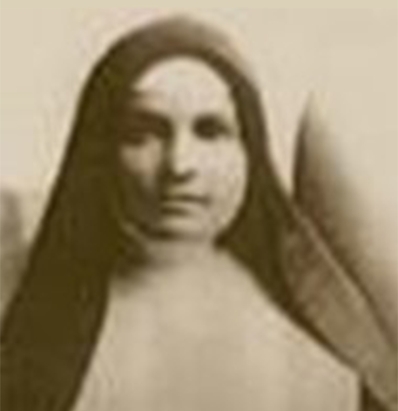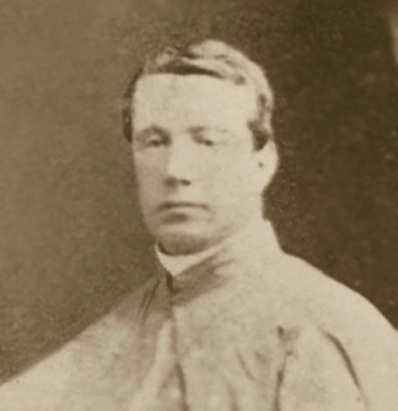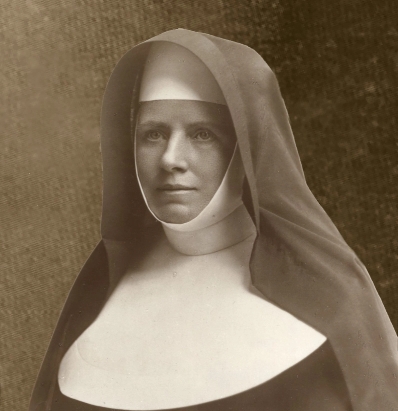In July 1872, just six years after the founding of the congregation in Penola by Father Julian Tenison Woods and Mother Mary of the Cross MacKillop, the first Sisters of St Joseph came to New South Wales to the Bathurst Diocese at the request of Bishop Matthew Quinn.
In December 1875 Bishop Quinn, resistant to the concept of central government approved by Rome in 1874, gave the Sisters in his diocese a choice: either remain as members of the original group, with centralised government or be members of a separate diocesan Josephite institute. Most of the community opted to remain in the original institute and returned to Adelaide. Sister Hyacinth Quinlan, however, stayed and took responsibility for the formation of the remaining sisters in the spirit of the institute. In this she was assisted by Fr Woods who, after returning from missionary work in Tasmania, spent time in Perthville encouraging the Sisters and adapting the Rule to the diocesan context.
Father Woods became the formative influence of the institute, visiting many times for five years, giving instructions, retreats and presiding at reception and profession ceremonies. Many candidates came to Perthville from his widespread missions, including the four young women chosen for the Lochinvar foundation.
On 28th August 1883 Sisters Joseph Dirkin, Baptist Dugan, Imelda Flood and Aloysius Cahill left Perthville to form a community of Sisters in the Maitland diocese at the request of its Bishop, James Murray. They boarded the train in Bathurst for the journey over the Blue Mountains to Sydney, travelled by coastal steamer to Newcastle and by buggy to Maitland where they stayed with the Dominican Sisters for a night before being escorted to Lochinvar the next day, 2nd September.
The Sisters travelled in a carriage placed at the disposal of Bishop Murray by a non-Catholic gentleman while the Bishop with a number of clergy accompanied them in his own buggy. The procession was met along the way by a large number of Lochinvar horsemen and some twenty buggies. On the hill outside Lochinvar, the school children with their teacher, Miss Murray, joined the procession to welcome the Sisters before they took up residence in their convent which had been converted from an inn. This was to be their home until the following June when they moved to larger accommodation on the site that was to become their permanent home.





On 3rd September, the Sisters took charge of the school with an enrolment of fifty-six pupils and so began the ministry of the Sisters of St Joseph in the diocese of Maitland-Newcastle. Young women from the area came to join the Sisters and in January 1885 Sisters were sent to Merriwa in the Upper Hunter and to Quirindi to staff schools and be a supportive presence to people in those isolated places. Soon Sisters spread across the region – to scattered farming communities, mining towns and the working suburbs of Newcastle. As well as staffing the small schools, the Sisters taught music, visited the families of their pupils and the sick in their homes and prepared children for the sacraments.
Over the years, the Sisters have extended their ministries to places beyond the Maitland-Newcastle Diocese in attempts to meet current and emerging needs. Whatever the ministry, the Sisters have remembered that they are …but instruments in the hands of God…. They continue to be inspired by the words of Julian Tenison Woods, To do good and have a great zeal for souls … never leave a good work untried and never spare ourselves.
Responding to the Second Vatican Council, the Sisters of St Joseph of Lochinvar joined with the other diocesan congregations in 1967 to form the Australian-New Zealand Federation of the Sisters of St Joseph. In 2012- 2014 when the other diocesan congregations merged with the Sisters of St Joseph of the Sacred Heart, the decision was made to remain an autonomous Lochinvar Congregation.
For details of our Founding Sisters click here.
For illustrated historical details click here.
For Anniversaries of the Sisters who have died click here.
Our Constitutions: A Future and A Hope, 2000
